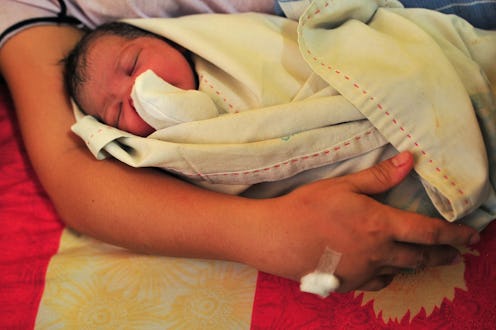Life
The Deal with Doulas
Expectant mothers are under an exorbitant amount of pressure. Between selecting a name, popping prenatal pills, juggling doctors’ appointments, and avoiding morning sickness, it’s no wonder why some women, including me, are hesitant about pregnancy. A stress-free pregnancy seems impossible, but it is manageable with the assistance of supportive partners, friends, relatives, and doulas.
Doula is an ancient Greek word that means a “woman who serves,” and this definition sums up the purpose of a birthing doula. According to DONA International, a doula is “a professional who is trained in childbirth and provides continuous support to a mother before, during, and just after birth.” She is hired to mother the mother by offering reassurance and emotional support, which helps women focus on the task of birthing their child. Continuous support is vital for pregnant women. Researchers find that women who hire doulas have shorter labors and less need for medications, epidurals, and caesarean sections; are prone to more spontaneous vaginal births; and are more satisfied with their birthing process.
Postpartum doulas support the mother during the first few weeks or months after birth. According to DONA International, postpartum doulas foster the transition from pregnancy to motherhood by “assisting with newborn care, helping out around the house, providing companionship, and educating the mother on infant feeding, emotional and physical recovery from birth, infant soothing, and coping skills for new parents.”
In 2006, only 3% of women were using a doula, but a recent survey by Listening to Mother found this number has risen to 6%. The number remains low for several significant reasons. Doulas are expensive, ranging from $200 to $5,000, depending on the services requested. Some states are attempting to pass legislation that will cover the costs of doula care, but Oregon is the only state to facilitate a Medicaid reimbursement program to pay for doulas.
Additionally, doulas are not medical professionals, so they can’t perform clinical tasks, offer medications or diagnoses and can’t deliver the child if complications arise. This is alarming, especially for women who are using both a trained doctor and a doula.
I am not an expectant or current mother, but I intend to hire a doula once I’m pregnant. A peaceful birthing climate is important to me, and is the cardinal reason I’m going the doula route. However, all women and their partners must make this decision for themselves.
